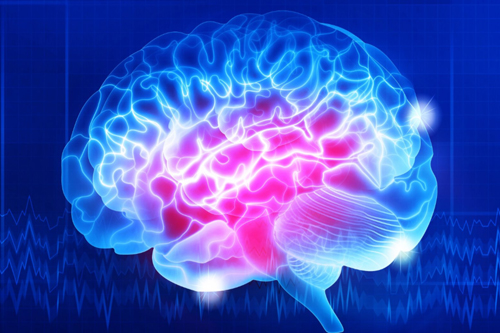
Functional neurosurgery
Functional neurosurgery is a specialized branch of neurosurgery focused on treating neurological conditions that affect movement, pain, and mental health. Unlike conventional neurosurgery, which primarily addresses structural abnormalities, functional neurosurgery aims to restore or enhance the brain’s normal functions through precise surgical interventions. This field has significantly evolved over the past few decades, offering relief to patients suffering from conditions such as Parkinson’s disease, epilepsy, dystonia, chronic pain, and psychiatric disorders.
Functional neurosurgery plays a crucial role in enhancing the quality of life for patients with debilitating neurological disorders. It provides minimally invasive and highly effective surgical options when medication and other treatments fail. The goal is to improve patient mobility, reduce pain, and restore normal neurological functions.
Common Conditions Treated with Functional Neurosurgery
1. Parkinson’s Disease
Parkinson’s disease is a progressive neurodegenerative disorder characterized by tremors, rigidity, and bradykinesia (slowness of movement). Functional neurosurgery, particularly Deep Brain Stimulation (DBS), has been a groundbreaking treatment for managing symptoms.
2. Epilepsy
For patients with drug-resistant epilepsy, surgical interventions such as vagus nerve stimulation (VNS), responsive neurostimulation (RNS), and laser ablation offer significant seizure control and improvement in quality of life.
3. Dystonia
Dystonia causes involuntary muscle contractions leading to abnormal postures and movements. DBS is widely used to alleviate symptoms and restore muscle control.
4. Chronic Pain Syndromes
Conditions such as trigeminal neuralgia, complex regional pain syndrome (CRPS), and failed back surgery syndrome benefit from procedures like spinal cord stimulation (SCS) and motor cortex stimulation (MCS).
5. Obsessive-Compulsive Disorder (OCD) and Depression
Major Functional Neurosurgery Procedures
1. Deep Brain Stimulation (DBS)
DBS involves implanting electrodes in specific brain regions to regulate abnormal neural activity. It is used for Parkinson’s disease, dystonia, essential tremor, epilepsy, and psychiatric disorders.
- A small electrode is implanted in the brain and connected to a pulse generator implanted in the chest.
- Electrical impulses help modulate neural activity and alleviate symptoms.
- Adjustable settings allow for personalized treatment.
1. Deep Brain Stimulation (DBS)
DBS involves implanting electrodes in specific brain regions to regulate abnormal neural activity. It is used for Parkinson’s disease, dystonia, essential tremor, epilepsy, and psychiatric disorders.
- A small electrode is implanted in the brain and connected to a pulse generator implanted in the chest.
- Electrical impulses help modulate neural activity and alleviate symptoms.
- Adjustable settings allow for personalized treatment.
2. Vagus Nerve Stimulation (VNS)
3. Spinal Cord Stimulation (SCS)
4. Motor Cortex Stimulation (MCS)
5. Responsive Neurostimulation (RNS)
6. Stereotactic Radiosurgery (SRS)
Benefits of Functional Neurosurgery
- Enhanced Quality of Life: Improves mobility, speech, and cognitive functions.
- Minimally Invasive Techniques: Many procedures use small incisions and localized treatment.
- Long-Term Relief: Effective for chronic neurological disorders resistant to medication.
- Customizable Treatments: Devices like DBS and SCS can be adjusted post-surgery.
Risks and Considerations
- Infection at the implantation site.
- Device Malfunction requiring revision surgery.
- Bleeding or Stroke (rare but possible with DBS and other procedures).
- Side Effects such as mood changes, cognitive issues, or speech difficulties.
Advances in Functional Neurosurgery
With technological advancements, functional neurosurgery is becoming more precise and effective. Some emerging innovations include:
- Closed-Loop DBS Systems: Devices that adapt stimulation in real-time based on brain activity.
- High-Resolution Imaging: Advanced MRI and CT scans allow for more accurate electrode placement.
- Artificial Intelligence (AI) in Neurosurgery: AI-driven systems enhance diagnosis, treatment planning, and post-operative monitoring.Contact Us
What Does a Functional Neurosurgeon Do?
Functional neurosurgeons collaborate with neurologists in managing the patient who has chronic neurological disorders. The neurosurgeon can thus perform various surgical procedures depending on the diagnosis, which include;
- Intracranial monitoring: This aids in checking the source of seizures that cannot be controlled by medication.
- Laser ablation surgery: It is used to treat lesions that sit deep in the brain that traditional surgery cannot access.
- Vagus nerve stimulation: It is used in the management of epilepsy.
- Deep brain stimulation: It is performed to treat tremors and Parkinson’s Disease.
- Microvascular Decompression: Given to relieve trigeminal neuralgia and hemifacial spasm
- Percutaneous rhizotomy: Provided for trigeminal neuralgia
- Stereotactic radiosurgery: Provided for tumors that lie within deep portions of the brain.Schedule your Consultation with Dr. Ritesh Nawkhare
